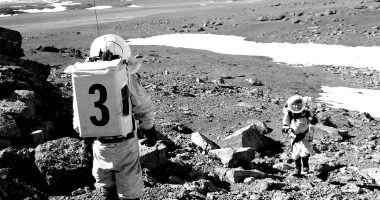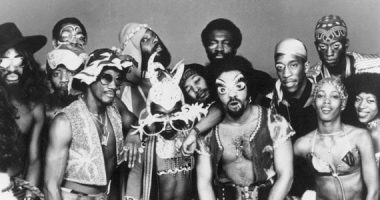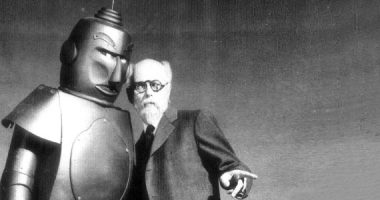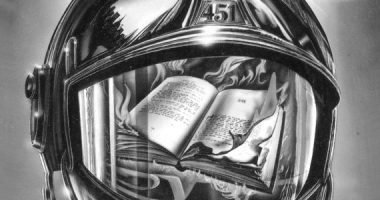Storytelling
Samanta Schweblin: “The Latin American women authors of my generation feel the joy of having arrived at a party in full swing”
Begoña Gómez Urzaiz
We talk to the Argentinian writer about her work, halfway between realism and science fiction.
Planet
Storytelling
Frictions in Reality
Elisabet Roselló
A reflection on the meaning of what is plausible in times of climate change and technological acceleration.
Storytelling
Shall We Play a Game?
Inés Macpherson
We explore the relationships between science fiction and video games, two narrative forms with a great capacity for imagining new universes.
Storytelling
The Women Men Don’t See
Ricard Ruiz Garzón
Among the authors who most helped to renew science fiction in the 20th century was James Tiptree Jr.: the pseudonym of a woman, like those who today are leading the revolution of the genre.
Storytelling
Martian cartoon strips
Jose Valenzuela Ruiz
Through comics, we analyse the evolution of our view of the Red Planet: from a territory to be conquered, to a reflection of our own nature.
Commons
Pedro Inoue: “The innocent bystander no longer exists”
Felipe G. Gil
We talk with the creative director of the magazine Adbusters who dissects the relationships between narrative and politics, science fiction and reality, and the left and pop culture.
Storytelling
Geek Minds
Jose Valenzuela Ruiz
We try to understand the secrets of the geek mind through neuroscience. Why are geeks so passionate about narrative universes?
Technology
The Thing
Jorge Carrión
A short story about how we unwittingly found ourselves surrounded by sensors in an always-connected world.
Storytelling
Afrofuturism, Science Fiction and African Identity
Ferran Esteve
Afrofuturism is an artistic and cultural movement that has been calling for a new identity for decades through the science fiction and historical fantasy genres.
Planet
Storytelling
The Anthropocene, Climate Change and Dystopias
Serielizados
When TV series tackle the future they tend to depict quite a dark world ahead of us.
Science
The “uncanny valley” hypothesis in robots
Ferran Esteve
The "uncanny valley" hypothesis holds that when a robot looks almost, but not exactly, like a human being, it causes disconcert and revulsion in the observer,
Storytelling
Predictions of Total Control
Jose Valenzuela Ruiz
The possibility of critical, educated, informed citizens is a fear that disturbes those in power and has caused the burning of books and librariries many times.











